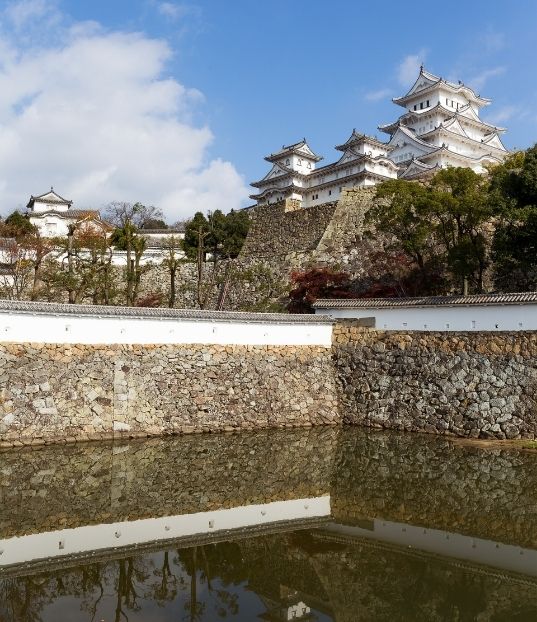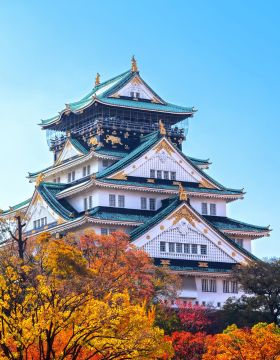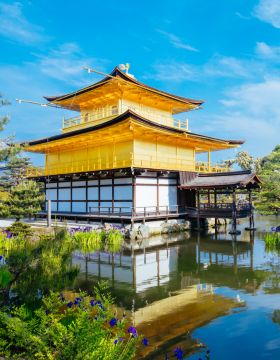Comprehensive Guide on Relocation to Japan
Are you planning to moving to Japan?
Moving to a new country sounds scary at first, right? Well, not if you are well prepared. We at ISS are here to help you with a complete guide on moving to Japan from Qatar.
Moving countries is a big step in one’s life and needs to be thought of thoroughly. If you are well prepared before moving and have a trustworthy moving company in Japan like ISS Relocations, this will be one of your best experiences.
If we compare Japan to other Asian countries in terms of moving, Japan is relatively easy to move to if you have accurate information and guidance. However, it is better to have a proper plan and, most importantly, a secure job before moving.
Staying in a country like Japan looks very glamorous and luxurious on the internet. However, one must consider that with all the glamour and luxuries comes the same level of expenses. Japan is one of the most developed and hence, one of the most expensive countries. But the standard of living you can enjoy is worth it.
There are many benefits of moving to Japan from UAE, like superb technology, delicious food, excellent healthcare, the best universities, etc. Considering all these benefits, many people prefer relocating to Japan. If you are thinking of moving too, our experts at ISS Relocations will help you with the complete process of moving your belongings and other important goods. From pet relocation to furniture and car shipping, we move your world to a new horizon!
Get A Free Moving Quote Today
"*" indicates required fields
Here are some basic details about Japan:
| Category | Capital | Population | Official Languages | Currency | Expat Population | Popular Cities |
|---|---|---|---|---|---|---|
| Information | Tokyo | 127 million Approx. | Japanese | Japanese Yen [¥ or JPY] | 2.2 million | Tokyo, Osaka, Hiroshima |

How To Moving To Japan
It is important to conduct thorough research while planning relocation. Know the best cities and the ones that are financially viable for you. Remember that Japan is an expensive place to stay. Make sure you have your finances covered and have a fixed place to live before you start packing. It is recommended to look for an agent if you are not sure about how to find a home by yourself.
If you can speak fluent Japanese or have a translator to help you, you can easily find a place to stay. It is important to know at least the basics of Japanese. If you want to stay for a long time, it is obvious that you will need to learn the language.
While deciding to move, think of your purpose for visiting. Because based on that, your visa type will differ. If you are moving for a purpose that requires you to stay for longer durations, like work or education, you will need to get certain documents which we will discuss in the next section.
If you are staying for longer duration, make sure you choose a reliable moving service in Japan like ISS Relocations to ensure that your belongings land safely as well!
ISS Relocations offers moving services to and from Japan to:
Dubai, UAE Oman Qatar Bahrain Saudi Arabia Kuwait India

Precision Relocation Services to Japan
Relocating to Japan? ISS Relocations offers meticulous planning, secure packing, and full customs support. We make your move organized and efficient—just like life in Japan.
Moving To Japan Visa’s Requirements
The first thing one thinks about when planning relocation is the Visa. When it comes to Japan, the visa process is pretty straightforward. It does not change based on which country you are from. There are over 30 different types of visas based on various professions. The cost remains the same, but the documents required will change with each profession, duration of stay, and purpose of stay.
Hence, you need to apply for the relevant type of visa, which depends on your reason for staying. You can apply by going to either a Japanese embassy near you or the Consulate General.
Here is a list of types of visas based on your duration and purpose of staying:
| Type of Visa | Validity |
| Highly Skilled Professional Visa | Tourist Visa |
| Specified Visa | Online Japan e-Visa |
| Official Visa | Transit Visa |
| Working Visa | Business Visa |
| Diplomatic Visa | General Visa |
These are the general documents you will need while applying for a visa. However, different documents are required based on different types of visas. Hence, follow the instructions on the official websites and prepare your documents accordingly.
- Visa application form.
- Passport.
- Photographs.
- Bank certificate which has been issued within the last 3 months. [In case you do not have a guarantor]
- Income tax returns. [In case you do not have a guarantor]
- Guarantee letter from your sponsor if you do have a guarantor.
- Certificate of eligibility.
We know the term ‘Certificate of eligibility’ might sound new to many. It is a vital document needed before moving to Japan from Saudi Arabia. The certificate of eligibility is required to be issued by the Ministry of Justice to prove that the candidate meets the criteria for staying in Japan. The reason for the stay must be verified as non-fraudulent and should be under the status of residence. This does not apply to a visitor or tourist.
This certificate needs to be provided by a Japanese person. If you are moving with a job offer, you need not worry about the certificate since your employer will provide that to you. This certificate ensures that your finances will be taken care of while in Japan. Hence, it is always recommended that you get a job before deciding to move.
If you are a student and moving for education, the certificate will be provided by the institute or university you will be studying at.
These were the basic visa requirements. However, make sure to visit the official website of the Japanese Ministry of Foreign Affairs to confirm all that you will need.
Here is the fee structure for the visa process. The charge is to be paid in Japanese currency [Yen]. It is to be paid at the embassy or the consulate general where the candidate has applied at.
Single entry visa – 3000 JPY
Multiple entry visa – 6000 JPY
Transit visa – 700 JPY
More Than Movers - We're Your Relocation Partners
Best Cities To Living In Japan
Japan is a country where chaos and peace reside together. You can choose the fast-paced life of cities or go to a quieter rural location. The transport system will take you wherever you need to be, regardless of where you live!
Moving to Tokyo
Tokyo is considered the best city in terms of lifestyle and job opportunities. The city is filled with ex-pats and is welcoming and warm to everyone!
Moving to Kyoto
Kyoto is another amazing place to live. With cultural diversity and peaceful life, the city is not more than 30 minutes away from the fast-paced Osaka city.
Moving to Osaka
Talking of Osaka, it is the 3rd most populated city in Japan. However, the cost of living here is almost 30% less than that of Tokyo. The city is popular for its vibrant nightlife.
While planning to move, consider these cities as they are the most central and have a high ex-pat population. You can find apartments in your preferred city, while storage in Japan will be taken care of by the experts at ISS Relocations!
Moving To Japan? Start Your Stress-Free Move Now!

Cost Of Moving To Japan
Here are the initial costs of moving to Japan:
| Category | Information |
| Apartment contracts with deposits | 320,000 to 400,000 JPY |
| Travel expenses | 3,500 JPY minimum [Single] |
| Food expenses | 30,000 to 40,000 JPY |
| Gas, electricity, and water | Approx. 10,000 JPY |
| Postage | Approx. 10,000 JPY |
Housing In Japan
Once your visa process is planned out, you need to start looking for a place to live in. Based on where you are living, you can decide how much you will be taking with you. However, do not worry about finding moving service in Japan.
We at ISS will take care of all your belongings and make sure your furniture and everything else lands safely in the land of the rising sun. All you need to do is book a service. The rest will be taken care of by the expert handlers and our team!
With such a huge population, it might be a bit difficult to find an apartment in Japan. However, since the transportation system in Japan is so swift, one can reach their destination in time with the right information.
Recently, it has been easier for foreign tenants to get an apartment on rent. The rental process is similar to that of Japanese citizens. However, the costs may be a bit higher than what regular citizens pay. A deposit, often called ‘key money,’ is also charged sometimes, which is usually not refundable.
As a foreigner, you will need to submit these documents:
- Residency cards
- Proof of employment
- Passport
- Certificate of income.
Renting an apartment as a foreigner will also require a guarantor. This is the person who will be liable to pay the rent and maintenance costs if the tenants fail to do so.If you do not happen to have any organization as your guarantor, various guarantor companies charge a certain amount and act as guarantors for you. Usually, for students, the guarantors are the universities or institutions, while for people who are working, their employers act as guarantors.
Housing options:
Here are some types of properties you can rent while moving to Japan from Bahrain.
- Apartments:
Apartments here are usually smaller here compared to many countries where foreigners come from. If you are in Tokyo, a 65.9 sq. meter apartment will cost you approximately 100,000 yen per month. This price is obviously for someone staying in an area like Tokyo or Osaka. However, as you go farther away from the cities, your rent will decrease as well.The general average rent for an apartment is somewhere between 50000 to 70000 yen per month. Apartments are cheaper compared to mansions and are better suited for students or single occupants. - Expat neighborhoods:
Many people who come from a foreign land [expatriates] who come for a longer duration prefer living in these neighborhoods. The foreigners who work in Tokyo mostly prefer the Shibuya-Ku or Minato-Ku areas situated in the central parts of Tokyo.
Most people find staying here simpler because the majority of foreigners know and speak English or other preferred languages. - Mansions:
These luxurious homes have at least 2 to 3 floors and are very spacious, often occupied by the wealthy. With a huge area of 8000 sq. ft., these homes offer complete privacy, insulated homes, better security, and amenities as well.
Like the size, the prices of these mansions are also extravagant, which is found to be worth it by people who have a family and can afford such lifestyles. This might change as you go farther away from the modernized area. - Share housing:
A house shared by multiple tenants is a great idea if you want lower prices and not a lot of work. Separate bedrooms and common bathrooms, kitchen, living rooms, etc. This type of option is better for people who are in Japan to study. Since the house is shared by people, so are the responsibilities. Hence, you don’t necessarily have to do everything by yourself.
Depending on the city you are in, the amenities offered, and the apartment sizes, the average share housing apartment rent is between 50,000 yen to 70,000 yen.
HealthCare System In Japan
There is a uniform price for all general and specialized healthcare services in Japan. These charges are decided through the national fee for service schedule, which is prepared by the government.
All prices related to medicines, equipment, and services are mentioned in this schedule and hence apply uniformly all over the country. The financially backward classes are also provided with subsidies to help pay for their insurance. For disabled people, the government provides necessary equipment like hearing aids, wheelchairs, crutches, etc.
Insurance Plans In Japan
There are 3 main types of insurance plans available for individuals. For employees, self-employed citizens, and people who are 70 years or older in age.
The first type is for employees of companies. Usually, companies deduct a specific amount from employee salaries for insurance premiums. The amount is decided by the employee’s financial conditions.
The second insurance scheme is for self-employed citizens. They simply pay the premiums based on their income and what assets they possess.
The third system covers the insurance costs of people who are 70 years or older and cannot work. The premiums come from the previous plans, and a part of them is used here.
Taxation In Japan
In Japan, the taxation for permanent and non-permanent citizens is different. While non-permanent citizens only need to pay taxes on their income based in Japan, permanent citizens need to file their taxes based on their worldwide income. The tax is also levied on interests, pensions, dividends, etc.
Here are some taxes and their rates in Japan recently:
| Tax Type | Latest | Previous |
| Sales tax | 10.00% | 10.00% |
| Social security | 31.52% | 30.68% |
| Social security [corporates] | 16.24% | 15.49% |
| Social Security [employee] | 15.28% | 15.19% |
| Personal income tax | 55.97% | 55.95% |
| Corporate tax | 30.62% | 30.62% |
Education In Japan
The Japanese education system is divided into the following stages:
Starting from 6 years of age, primary education lasts for 6 years. After that, from 12 years onwards, three years of junior high school and finally, three years of high school. After which, students can choose the degree they wish to pursue. The college duration usually ranges from 2 to 4 years.
For children with special needs, a “Special Needs Education System” is present to teach these children in the manner that best suits them.
The school years begin somewhere around April and last till March. The first semester is from April to August, the second one is from September to December, and the last one lasts from December to march. Between these months, there are summer, winter, and spring breaks as well.
The schools in Japan are functional from Monday to Friday. Each lasts for 50 minutes, and there are 6 periods in the day. The timing is usually from 8.15 am to 3.30 pm, including the after-school club activities.
While planning to move as a student as well, there are many things one needs to take care of. But do not worry about finding the right international moving companies in Japan for your belongings! We will ensure the safety of all your important academic and personal articles.
Work Market In Japan
Japan is known for its high employment and very low unemployment rates. The market in Japan is highly skill oriented. The employment rates have been over 90% for the past 10 years, which means that almost all graduates can get a job easily.
Due to their policy of lifetime employment, the market in Japan is not affected by any economic shocks. Negotiable wages, frequent bonuses, opportunities for increment and promotion, etc., ensure the flexibility of pay scales.
The average salary in Japan is 4,530,000 yen per year. However, it changes according to what field and position you are working in. Some companies offer a lower salary initially, but the interesting thing about traditional Japanese businesses is that high pay is given to employees who stay in the company through the years.
The best-paying industries in Japan are manufacturing, IT, construction, finance, marketing, medicine, etc.
FAQs – Moving to Japan
How can I move to Japan?
People move for various reasons like studies or jobs. However, you need to have financial coverage before you move. You will need to find a place before you move along with warehousing in Japan. But fret not! We at ISS Relocations will take care of your warehousing and relocation.
Is it hard to live in Japan as an expat?
On average, the monthly cost of living in Belgium is around 750 to 900 EUR. This includes your groceries and transport costs.
Is Japan expensive?
The country is highly developed and hence has a higher cost of living. However, as you move towards the rural areas, the costs reduce considerably.
How can I apply for a Japanese visa?
You can either apply online by going to the official website of the Japanese Ministry of Foreign affairs, or you can visit the nearest Japanese embassy. The process will be explained to you before the application, and assistance will also be given by the authorities.
What is the travel expense while moving to Japan?
If you are a single traveler, you can buy plane tickets ranging from 3,500 yen to 18,500 yen. For two travelers, the cost ranges from 7,000 yen to 28,000 yen.
Is moving to Japan from UAE worth it?
Moving to Japan is worth it for many due to its unique culture, excellent public services, and strong economy. Japan offers a high quality of life, beautiful landscapes, and rich traditions. If you’re looking to experience life in one of the world’s most innovative and safe countries, Japan is a fantastic choice. ISS Relocations can guide you through visa processes, housing, and settling in Japan with ease.
Can I move to Japan permanently?
Yes, it is possible to move to Japan permanently, but the process can be lengthy and requires obtaining a long-term visa. Many expatriates secure permanent residency after several years of living and working in Japan. ISS Relocations can assist with visa applications, finding suitable accommodation, and adjusting to the local culture.









